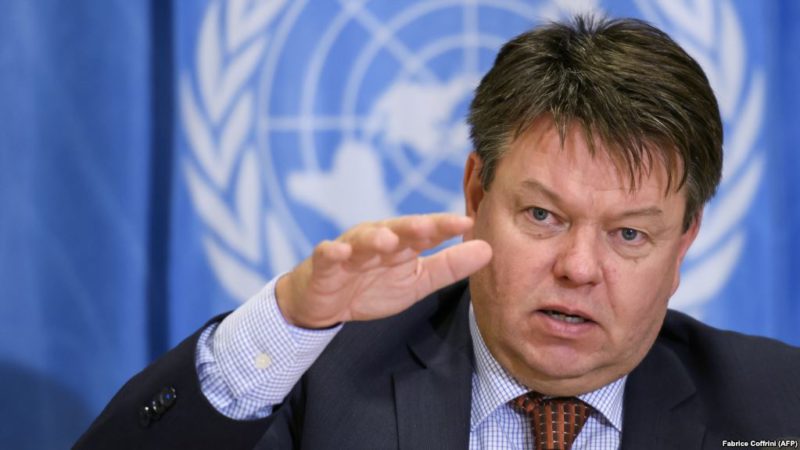A study has cautioned that weather and climate conditions, including the onset of higher temperatures in the northern hemisphere spring, should not be used as a trigger to relax measures to halt the spread of the virus.

This is contained in a World Meteorological Organisation (WMO) Task Team report on Meteorological and Air Quality factors affecting the COVID-19 pandemic released on Thursday, March 18, 2021.
COVID-19 transmission dynamics in 2020 and early 2021 appear to have been influenced primarily by government interventions such as mask mandates and travel restrictions rather than meteorological factors, according to the 16-member panel of experts in earth and medical sciences and public health. Other relevant drivers include changes in human behavior and demographics of affected populations, and more recently, virus mutations.
“At this stage, evidence does not support the use of meteorological and air quality factors as a basis for governments to relax their interventions aimed at reducing transmission,” said Task Team Co-chair, Dr Ben Zaitchik, Department of Earth & Planetary Sciences, Johns Hopkins University, Baltimore, USA.
“We saw waves of infection rise in warm seasons and warm regions in the first year of the pandemic, and there is no evidence that this couldn’t happen again in the coming year,” Zaitchik added.
The Task Team report provides a summary of key findings published by the first week of January 2021. It therefore does not include peer-reviewed literature regarding the influence of meteorological and air quality factors on transmission of the new strains of the COVID-19 virus, or on severity of infections caused by these new strains.
The report looks at the potential role of seasonality. Respiratory viral infections frequently show some form of seasonality, in particular the autumn-winter peak for influenza and cold-causing coronaviruses in temperate climates. This has fueled expectations that, if it persists for many years, COVID-19 will prove to be a strongly seasonal disease.
“The underlying mechanisms that drive seasonality of respiratory viral infections are not yet well understood. A combination of direct impacts on virus survival, impacts on human resistance to infection, and indirect influence of weather and season via changes in human behavior may be at work,” says the report’s executive summary.
“Laboratory studies of SARS-CoV-2, the virus that causes COVID-19, have yielded some evidence that the virus survives longer under cold, dry, and low ultraviolet radiation conditions. However, these studies have not yet indicated if direct meteorological influences on the virus have a meaningful influence on transmission rates under real world conditions,” according to the executive summary.
Evidence on the influence of air quality factors is still inconclusive. There is some preliminary evidence that poor air quality increases COVID-19 mortality rates, but not that pollution directly impacts airborne transmission of SARS-CoV-2, according to the Task Team.
The report focuses on outdoor meteorology and air quality conditions and does not address details of indoor air circulation.
The interdisciplinary and international Task Team was established by WMO’s Research Board in order to provide a rapid summary of the state of knowledge regarding potential meteorological and air quality influences on COVID-19 dynamics, given the staggering number of papers and pre-prints currently available.
“The rapid pace of COVID-19 research has meant that studies with limited data appeared faster than the information could be cross-checked and peer-reviewed. It soon became clear that reported evidence was often contradictory or selective due to methodological and data-related shortcomings. The WMO Task Team therefore seeks to encourage good practice in research and communications,” says Prof. Juerg Luterbacher, Director, Science & Innovation, and WMO Chief Scientist.
Future work of the Task Team will include the update of the scientific evidence over the next months, the identification and promotion of a structured set of priority research questions, objectives and priorities for research investment in the areas of the pandemics – weather – climate-air quality nexus.
The Task Team will also advise and inform on good practices and minimum standards for methods for integrated infectious disease modelling considering environmental determinants, and recommend on how the coronavirus, climate, weather and air quality nexus should be factored in to research and information delivery in future WMO activities.
